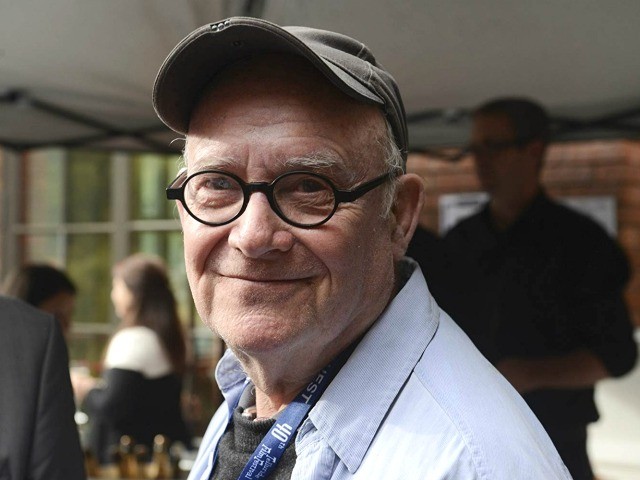Buck Henry died aged 89 having done something very few have ever accomplished. In fact, what Henry did is so rare, more people may have walked on the moon. “Two perfect screenplays” might not sound like many over a long life and a career that spanned four decades, but there are only a handful of people who have done such a thing, and in that group I’m including successful screenwriters.
Henry’s first perfect screenplay was The Graduate (co-written with Calder Willingham), a 1967 game changer that captured the attention and imagination of an entire generation of young people who were wandering around America with no sense of purpose in a country so wealthy and powerful it removed all sense of purpose. The wars had all been won. Prosperity is everywhere. What the hell do we do now?
Our hero, Dustin Hoffman’s Benjamin Braddock, is a 20-year-old who did everything he was supposed to do. He led a moral life. He got his bachelor’s degree. Now what? The movie’s most famous line, conceived by Henry, suggests he get into “plastics.” Not a bad idea, actually, but not exactly soul-stirring.
Instead he gets involved with Mrs. Robinson (Anne Bancroft), a wonderfully-realized, complicated, and ultimately sympathetic character. Then, as this decent young man is corrupted by his own lack of direction, he pursues the daughter, Elaine Robinson (Katharine Ross) a vapid pretty face. Elaine’s flaws don’t matter, though. Pursuing her gives Benjamin a purpose, which brings us to one of greatest Hollywood endings of all time.
Benjamin and Elaine have done exactly what the burgeoning Me Generation told them to do… Bucked the system, defied what was expected of them, shocked the stodgy adults, fought to be together, and now they’re racing out of that church (after defiling it by using a Crucifix to jam the door) and have triumphantly jumped on this bus. Free! Together at last!
And then, like the proverbial dog that catches the car… Now what? You see, Benjamin and Elaine don’t really love each other. They were just looking for something to do, something to fill their empty lives, and now that they’ve succeeded… so what? Now what?
According to film historians, Henry saved The Graduate. He was the fourth screenwriter brought in by director Mike Nichols, and he turned a novel about a college graduate lured into an affair into something that still has something to say, and always will.
A perfect screenplay, and for it Henry earned an Oscar nomination he should have won (or at least lost to Cool Hand Luke instead of In the Heat of the Night). The Graduate is a timeless movie that grossed $104 million in 1967. That $104 million is not adjusting for inflation. In today’s dollars, we’re talking $764 million and what is still the 23rd most popular movie of all time. And 53 years later we keep going back because it’s a perfect screenplay that never stops revealing something new.
Artists literally spend their entire lives trying and failing to create something, anything, as perfect as The Graduate, and then Henry did it again…
A mere 11 years later, working with the great Elaine May, Henry would co-write and co-direct (with star Warren Beatty) Heaven Can Wait, which grossed nearly $100 million is 1978.
While Heaven Can Wait has not stuck in the craw of popular culture like The Graduate, that’s because it is something entirely different. In 1978, a year of blistering cynicism in a country still reeling from Watergate, Vietnam, race riots, energy shortages, Mai Lai, inflation, and unemployment, Henry, May, and Warren reached back 40 years to deliver a lovely, moving, and very funny remake of Here Comes Mr. Jordan (1941).
Here were three people who defined the Easy Riders and Raging Bulls of New Hollywood, not just producing an old-fashioned crowd-pleaser, but pulling it off in grand style. And you should go back and give it a look. Heaven Can Wait is as good as movies get. For his work here, Henry earned more Oscar nominations, including for his direction.
In 1967, Henry did win an Emmy for his role in creating (with the great Mel Brooks) the legendary sitcom Get Smart.
Henry also a performer, a wonderfully understated performer who did everything from memorable bit parts to supporting roles, including in his own movies.
In The Graduate, he was the nosy hotel clerk. In Heaven Can Wait he’s the angel who screws everything up.
People my age were first introduced to Henry as a performer through Saturday Night Live. Between 1975 and 1980, the true golden years of SNL, when it was still irreverent, took no prisoners, and worshipped no sacred cows, Henry hosted a total of 10 ten times, a feat only topped by three others.
Outside of his talent, Henry is a mile marker to a time when Hollywood and popular culture were truly free, that era from about 1967 to 1980 when the old Hollywood Production Code was dead and buried and the New Production Code of Fascist Political Correctness had yet to take hold — and he made the most of it, helped to define it, and laughed with us instead of at us. Henry could also laugh at himself. His cameo in Robert Altman’s The Player is just perfect.
Let me also recommend 1995’s To Die For, an underrated gem written by Henry starring a never better Nicole Kidman. What it says about our news media and modern celebrity is even more relevant today than it was 25 years ago.
Follow John Nolte on Twitter @NolteNC. Follow his Facebook Page here.

COMMENTS
Please let us know if you're having issues with commenting.